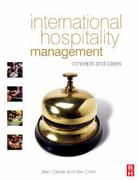Question
From Stand-Alone to Integrated Applications YIOULA Group is the largest glass manufacturer in the Balkans, producing over 625,000 glass containers annually as well as over
From Stand-Alone to Integrated Applications
YIOULA Group is the largest glass manufacturer in the Balkans, producing over 625,000 glass containers annually as well as over 30,000 tons of tableware. Starting in the 1990s in Greece, the company expanded by acquiring other glassmaking firms in Romania, Bulgaria, and Ukraine. The company has seven factories in four countries, about 2,100 employees.
As a result of its growth through acquisition, YIOULA Group found itself with a confusing variety of information systems. The group was unable to compare production costs for the same item across factories, could not improve efficiencies by coordinating purchasing and financial management across all its plants, and was not positioned for continued growth or expansion into new market areas.
Clearly, its legacy stand-alone applications needed to be replaced.
YIOULA Group CIO Zacharias Maridakis had previous experience using integrated enterprise software when he worked at Mobil Oil's Greek subsidiary, Mobil Oil Hellas S.A., in the 1990s. Therefore, he was well acquainted with the advantages of such software. Under his direction, YIOULA Group investigated various software packages. They selected JD Edwards EnterpriseOne, named for a company that had become part of Oracle Corporation in 2005. Part of the reason for this choice was that most other ERP packages, including the SAP software with which Maridakis had worked at Mobil, are designed primarily for much larger organisations. EnterpriseOne was always intended for medium-sized firms.
Because YIOULA Group had little experience with EnterpriseOne, it enlisted the help of Oracle partner Softecon to help configure the software to the company's needs, meet the legal requirements of each region in which it operates, and manage implementation in each area. Support for the Greek language (as well as English and eighteen others) is a standard JD Edwards EnterpriseOne capability available from Oracle; Softecon added the other languages that YIOULA Group needed to the user interface. YIOULA Group also added a specialised cost comparison module from Softecon to the basic EnterpriseOne package. This module helps the group choose the lowest-cost facility to manufacture a product.
The conversion to a single enterprise package gave YIOULA Group the expected benefits. Time from order to invoice, delivery time, and cash collection have all been accelerated. Financial data is now available two weeks after the end of a period versus one month previously. A consolidated view of inventory across all plants has enabled the group to manage inventory more efficiently and comprehensively and to use just-in-time purchasing methods.
Perhaps even more importantly, YIOULA Group is now positioned to grow. As Maridakis puts it, "Oracle's JD Edwards EnterpriseOne is a key enabler of our strategy to enhance market leadership in the Balkans, grow our business in the Ukraine, and continue to improve productivity, efficiency, and profitability as we expand into new markets."
1.1. What problems had the YIOULA Group's stand-alone legacy software created for the
company? (6 Marks)
Step by Step Solution
There are 3 Steps involved in it
Step: 1

Get Instant Access to Expert-Tailored Solutions
See step-by-step solutions with expert insights and AI powered tools for academic success
Step: 2

Step: 3

Ace Your Homework with AI
Get the answers you need in no time with our AI-driven, step-by-step assistance
Get Started


